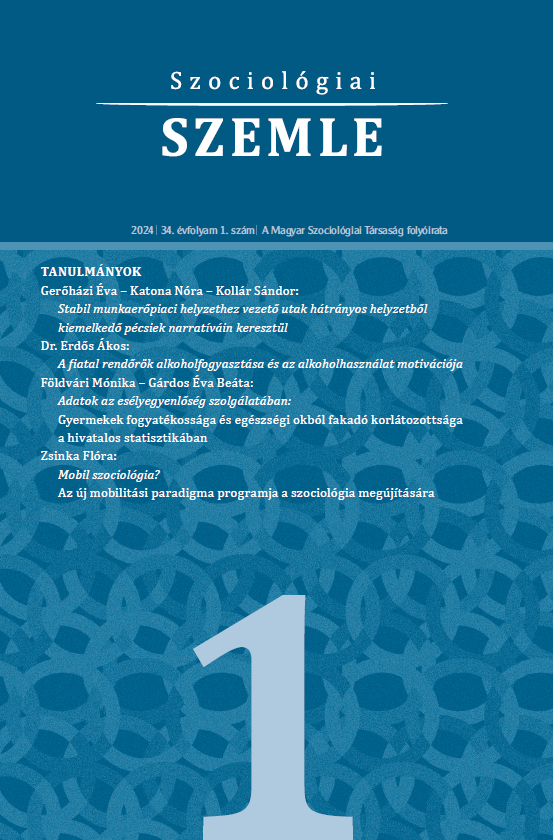Mobile sociology?
The agenda of the new mobilities paradigm for renewing sociology
Abstract
The aim of this paper is to present and critically evaluate the interdisciplinary research direction known as the new mobilities paradigm, with particular reference to the programme that John Urry has set out to renew sociology. In his writings, Urry argues that trends in the 21st century, such as increasing mobility enabled by technological innovation, growing networking, hybridisation and complexification, requires a reconsideration of the previous territoriality-centred approach and the development of conceptual frameworks and methods that can be used to study the changing forms of social life. After summarising this agenda, this paper first assesses the innovations proposed by Urry and his co-authors from a theoretical and methodological perspective, and then examines the impact of the mobility turn based on a review of studies published in the Mobilities journal between 2006 and 2023. On this basis, the paper argues that, despite their shortcomings, the theoretical and methodological considerations offered by the proponents of the new mobilites paradigm can enrich the toolkit of sociological research in many respects and contribute to a more nuanced understanding of certain social phenomena, but cannot be considered a theoretically coherent paradigm. The theoretical synthesis developed by Urry draws heavily on the work of other authors, and the novelty of the approach seems in many cases to be more a feature of the theories he refers to. Based on the journal articles examined, it can be concluded that it has not become a uniformly accepted framework of understanding even in the field of mobilities studies.





